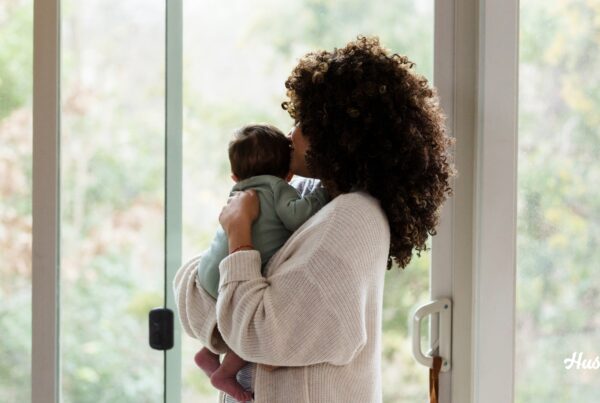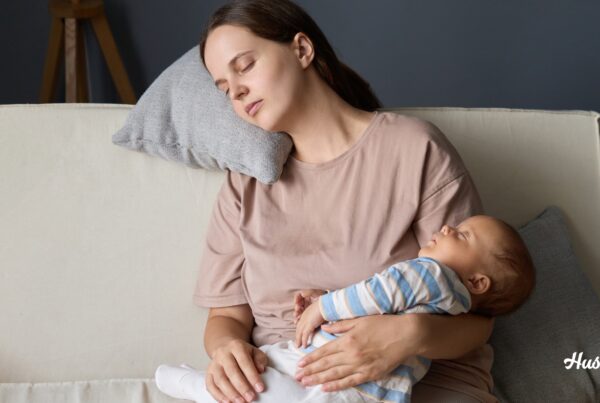In the world of sleep solutions, sleep music has emerged as a powerful, natural remedy to help parents overcome nighttime anxiety, mental clutter, and chronic exhaustion. But does it actually work?
If you’re a parent who’s ever laid awake thinking about tomorrow’s to-do list, worrying about your child’s wellbeing, or replaying the chaos of the day, you’re not alone. And sleep music might be exactly what your nervous system needs.
In this post, we’ll explore the science behind sleep music, how relaxation sounds influence the brain, and whether they can truly promote deep sleep—especially for parents. Plus, we’ll recommend proven techniques and audio resources to help you unwind and fall asleep faster.

Why Parents Struggle with Sleep
Parenthood rewires your brain. From the moment your child is born, sleep is no longer just a personal need—it’s a luxury. Between nighttime feedings, mental load, and anxiety, it’s common for parents to suffer from disrupted or poor-quality sleep.
Some key contributors to sleep deprivation in parents include:
-
Mental overstimulation (scrolling social media, watching TV in bed)
-
High cortisol levels due to daily stress
-
Interrupted sleep cycles from tending to children
-
Anxiety and racing thoughts once the house is finally quiet
That’s where sleep music and relaxation sounds come in.
What Is Sleep Music?
Sleep music refers to calming audio tracks designed to slow your heart rate, calm your mind, and prepare your body for deep sleep. This can include:
-
Ambient nature sounds (rainfall, ocean waves, forest sounds)
-
Binaural beats
-
Solfeggio frequencies
-
Classical or instrumental music
-
Guided sleep meditations
These tracks often blend relaxation sounds and gentle rhythms that signal the brain it’s safe to shut down for the night.
How Sleep Music Works on the Brain
Sleep music helps activate your parasympathetic nervous system—the part of your body responsible for rest and digestion. By reducing cortisol and boosting melatonin (the sleep hormone), music helps your body transition from “fight or flight” to “rest and repair.”
Scientific studies show that:
-
Listening to calming music before bed lowers heart rate and blood pressure
-
Certain frequencies can enhance slow-wave sleep, the deepest and most restorative sleep stage
-
Music can distract the mind from intrusive thoughts or worries
Harvard Health supports the use of music as a proven sleep aid, especially for those suffering from stress and anxiety.
The Best Types of Sleep Music for Parents
Not all sleep music is created equal. Parents need quick, accessible options that work well with their routine. These are the top types of relaxation sounds that promote deep sleep:
1. Nature Sounds
-
Rain, ocean, wind, and forest sounds
-
Proven to reduce the body’s stress response
-
Ideal for white noise to block external disruptions (like a crying baby or city sounds)
2. Binaural Beats
-
Use two slightly different frequencies in each ear
-
Can promote alpha and theta brainwave states—linked to light sleep and relaxation
-
Headphones recommended
3. Solfeggio Frequencies
-
Specific tones believed to heal the body (like 432 Hz or 528 Hz)
-
Great for reducing anxiety before bed
-
Popular in the spiritual wellness community
4. Guided Sleep Meditations
-
Combine calming music with visualisation and breathwork
-
Help parents release mental tension
-
Especially effective after a long, emotionally draining day
The Science: Does Sleep Music Actually Help?
Yes—and here’s what the research says:
- A 2018 study in the Journal of Music Therapy showed that sleep music helps reduce sleep onset latency (how long it takes to fall asleep).
- A meta-analysis published in Frontiers in Psychology found that music enhances sleep quality in adults, especially when used consistently over time.
- According to Sleep Foundation, soothing music can also lengthen total sleep time and improve efficiency, particularly in stressed populations like new parents.
In short: consistent use of sleep music and relaxation sounds can improve your deep sleep, mental clarity, and even daytime parenting performance.
Tips for Using Sleep Music as a Parent
- Set a sleep cue: Play the same playlist or audio every night as a signal to your brain that it’s time to unwind.
- Use a timer: Avoid draining your battery by using music apps that auto-stop after 30–60 minutes.
- Avoid lyrics: Choose music without words, which can be less distracting.
- Create a bedtime ritual: Pair music with a warm bath, essential oils, or meditation.
- Use the Hushhly app: With personalised tracks based on your stress levels and emotions, it’s designed to fit even the busiest parent’s schedule.
Hushhly’s Sleep Music Features
At Hushhly, we understand that every parent’s nervous system is unique. That’s why we created AI-personalized sleep music experiences tailored to:
- Emotional state (e.g., anxious, overstimulated, tired)
- Time available (5-min wind-down vs. full 30-min guided sleep)
- Age of your child (so you can share soothing music for bedtime routines too)
You’ll find:
- Calming playlists for adults and kids
- AI-generated affirmations blended with ambient music
- Sleep stories voiced by gentle narrators
- Integration with your meditation and habit tracking streaks
Try our Deep Sleep Recovery or Quick Reset Meditations for better nights and calmer days.
When Sleep Music Isn’t Enough
If you’re still struggling with sleep despite using relaxation sounds, consider:
- Reducing caffeine or screen time in the evening
- Practicing regular breathwork or mindfulness meditation
- Seeking professional support if you’re experiencing persistent insomnia or postpartum anxiety
Sleep music is a tool—not a cure-all. But for many parents, it’s an effective, low-effort way to build better sleep hygiene.
Final Thoughts: Why Sleep Music Works for Parents
Sleep isn’t a luxury—it’s essential. As a parent, it’s easy to pour into everyone else and neglect your own restoration. But the truth is, your child needs a well-rested, regulated version of you.
Sleep music isn’t just background noise—it’s a healing frequency, a bridge between chaos and calm, a reset button you can access every night.
So the next time your brain won’t stop buzzing, reach for your headphones. Let the relaxation sounds wash over you. Let yourself rest.



